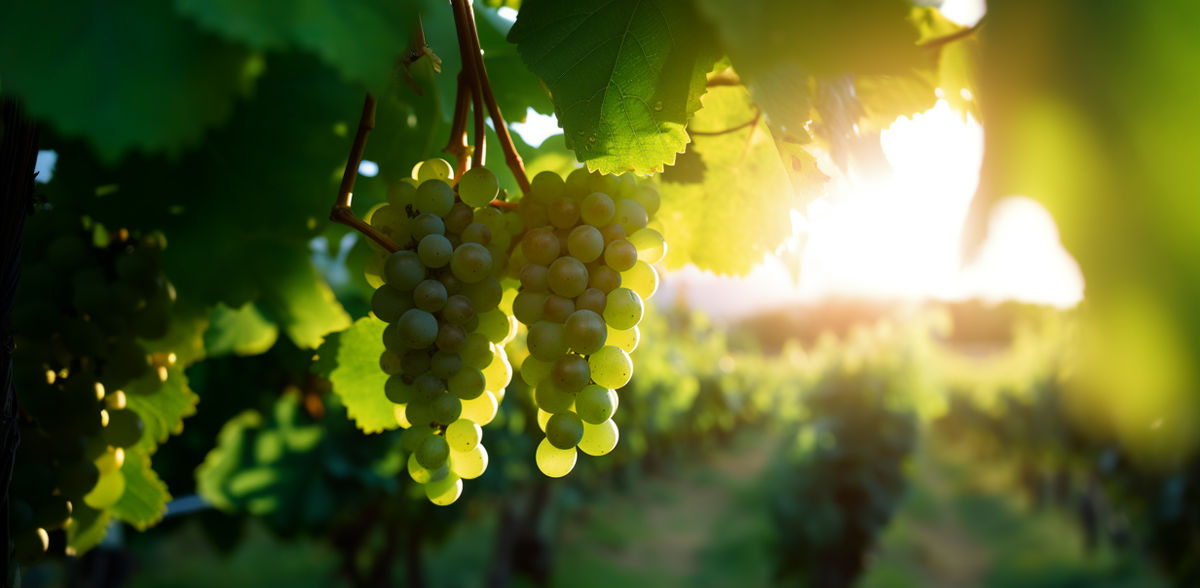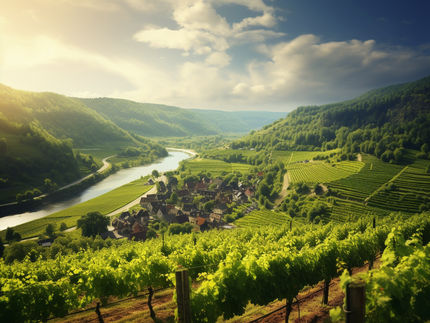Winegrowing: Area for sauvignon blanc in Germany increased by 162% from 2012 to 2022
Cultivation areas for wine varieties more native to the south further expanded
The trend toward heat-loving grape varieties continues unabated: Local winegrowers are increasingly relying on originally southern varieties, which are now also thriving in Germany. According to the Federal Statistical Office (Destatis), the area under Sauvignon blanc vines in Germany increased by almost 162% from just over 700 hectares in 2012 to just over 1,900 hectares in 2022. Other internationally important grape varieties are also increasingly being cultivated in Germany: The area under chardonnay, for example, increased by 83% to a good 2,700 hectares in the years from 2012 to 2022. The red wine varieties Merlot (886 hectares, +59%) and cabernet sauvignon (483 hectares, +43%) are now also being grown on significantly larger areas in Germany than ten years previously.
Area for new fungus-resistant grape varieties increased compared with the previous year
Ideally, vines should not only be adapted to the climate, but also be robust against diseases. In order to be able to reduce the use of pesticides, winegrowers are constantly testing new grape varieties with particularly strong resistance to the vine diseases powdery and downy mildew. In 2022, such fungus-resistant grape varieties were grown on a total of just under 2,800 hectares, 3.7% more than in the previous year. For example, the area under cultivation for the white grape variety Cabernet blanc was increased by just under 15% to 260 hectares in 2022 compared to the previous year. The area under Solaris increased by 3% to 207 hectares within the year. The Souvignier gris grape variety was grown on 205 hectares, 57% more than in 2021, with the exception of the red wine grape variety Regent, which has been established for some time. It was grown on 1,600 hectares in 2022, down 3% from the previous year and 21% from 2012. This development is in line with the general market trend, according to which most red wine varieties are showing a decline in cultivation area.
Total winegrowing area stagnates
Overall, the winegrowing area in Germany in 2022 remained virtually unchanged from the previous year at around 103 400 hectares. In 2012, it had still stood at 102,200 hectares. Rhineland-Palatinate had the largest area under vines in 2022 with around 65,000 hectares. This means that more than half (just under 63%) of German wine was grown in this state. This is followed by Baden-Württemberg with 26 % and Bavaria with 6 %. The smallest vineyards were in North Rhine-Westphalia (20 hectares), Schleswig-Holstein (22 hectares), Mecklenburg-Western Pomerania (23 hectares) and Lower Saxony (25 hectares). In the city states of Berlin, Bremen and Hamburg, no commercial viticulture was practiced.
Note: This article has been translated using a computer system without human intervention. LUMITOS offers these automatic translations to present a wider range of current news. Since this article has been translated with automatic translation, it is possible that it contains errors in vocabulary, syntax or grammar. The original article in German can be found here.
Most read news
Other news from the department business & finance

Get the food & beverage industry in your inbox
By submitting this form you agree that LUMITOS AG will send you the newsletter(s) selected above by email. Your data will not be passed on to third parties. Your data will be stored and processed in accordance with our data protection regulations. LUMITOS may contact you by email for the purpose of advertising or market and opinion surveys. You can revoke your consent at any time without giving reasons to LUMITOS AG, Ernst-Augustin-Str. 2, 12489 Berlin, Germany or by e-mail at revoke@lumitos.com with effect for the future. In addition, each email contains a link to unsubscribe from the corresponding newsletter.






























































